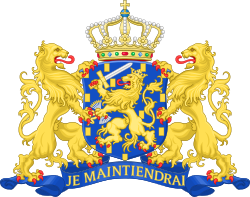De Meester cabinet | |
|---|---|
| Cabinet of the Netherlands | |
| Date formed | 17 August 1905 |
| Date dissolved | 12 February 1908 (Demissionary from 21 December 1907) |
| People and organisations | |
| Head of state | Queen Wilhelmina |
| Head of government | Theo de Meester |
| No. of ministers | 9 |
| Ministers removed | 2 |
| Total no. of members | 11 |
| Member party | Liberal Union Free-thinking Democratic League Independent Liberals (Confidence and supply) |
| Status in legislature | Left-wing Minority government |
| History | |
| Election | 1905 election |
| Outgoing election | 1909 election |
| Legislature terms | 1905–1909 |
| Incoming formation | 1905 |
| Outgoing formation | 1907-1908 |
| Predecessor | Kuyper cabinet |
| Successor | T. Heemskerk cabinet |
| Part of the Politics series |
 |
|---|
| |
The De Meester cabinet was the cabinet of the Netherlands from 17 August 1905 until 12 February 1908. The cabinet was formed by the political parties Liberal Union (LU) and the Free-thinking Democratic League (VDB) after the election of 1905. The left-wing [1] cabinet was a minority government in the House of Representatives but was supported by Independent Liberals for a majority. Theo de Meester of the Liberal Union was Prime Minister. [2]










